 Petzlover
Petzlover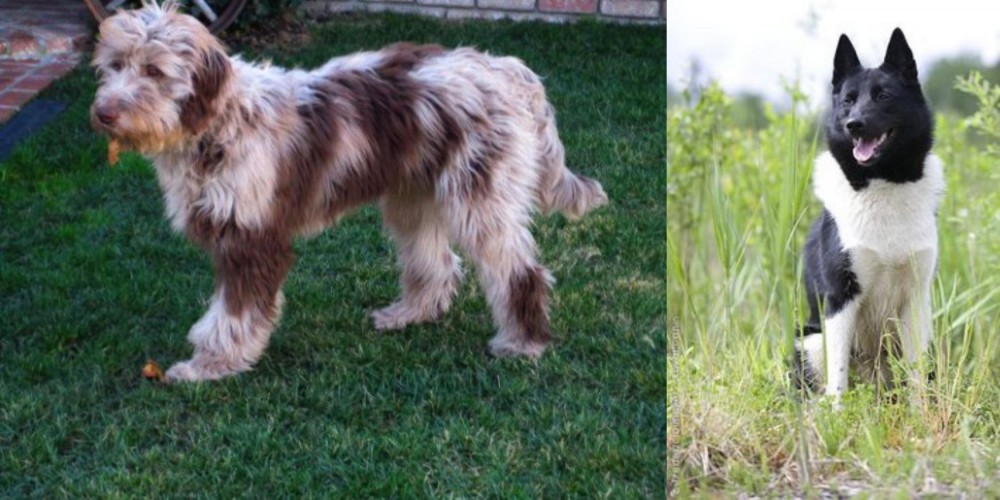 Aussie Doodles is originated from United States but Russo-European Laika is originated from Russia. Aussie Doodles may grow 10 cm / 3 inches shorter than Russo-European Laika. Aussie Doodles may weigh 8 kg / 18 pounds more than Russo-European Laika. Both Aussie Doodles and Russo-European Laika has same life span. Both Aussie Doodles and Russo-European Laika has same litter size. Aussie Doodles requires Moderate Maintenance. But Russo-European Laika requires Low Maintenance
Aussie Doodles is originated from United States but Russo-European Laika is originated from Russia. Aussie Doodles may grow 10 cm / 3 inches shorter than Russo-European Laika. Aussie Doodles may weigh 8 kg / 18 pounds more than Russo-European Laika. Both Aussie Doodles and Russo-European Laika has same life span. Both Aussie Doodles and Russo-European Laika has same litter size. Aussie Doodles requires Moderate Maintenance. But Russo-European Laika requires Low Maintenance
 It is interesting to note that the Australian Shepherd doesn’t have much in common with the land ‘down under’. The dog has always been a popular companion dog in the United States as a working dog. As a hybrid, the Aussiedoodle is a new breed that doesn’t have a detailed history, but it is worth taking not that the 2 breeds that have been used to create the Aussiedoodle do have long histories each.
It is interesting to note that the Australian Shepherd doesn’t have much in common with the land ‘down under’. The dog has always been a popular companion dog in the United States as a working dog. As a hybrid, the Aussiedoodle is a new breed that doesn’t have a detailed history, but it is worth taking not that the 2 breeds that have been used to create the Aussiedoodle do have long histories each.
It is believed that the name of the Australian Shepherd is because the ancestors of the dog arrived from Australia in the United States and were named from where their ancestors previously resided. The Aussiedoodle has only emerged on the scene in the last 10 years and is becoming hugely popular. The breed isn’t recognized by the American Kennel Club but are recognized by the American Canine Hybrid Club.
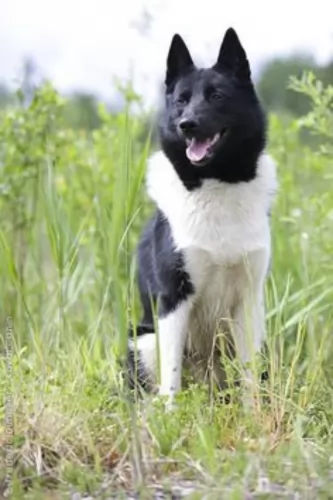 The Russo-European Laika is a hunting dog that comes from Russia.
The Russo-European Laika is a hunting dog that comes from Russia.
It is a dog that has been developed from Spitz type dogs. A breeding program was started for the dog in 1944.
The Russo-European Laika dog is recognized by the Federation Cynologique Internationale in the Spitz and Primitive type group.
 The Australian Shepherd was bred to herd livestock together, and with the Aussiedoodle, you’ll still sometimes see this trait, and he may well try to herd his human family into the car. The Aussiedoodle can’t always be expected to look the same as they come in many sizes and shades of colour, some leaning more towards the Poodle and others more towards the Australian Shepherd. He is a medium- to large sized dog with a strong-boned, muscular structure.
The Australian Shepherd was bred to herd livestock together, and with the Aussiedoodle, you’ll still sometimes see this trait, and he may well try to herd his human family into the car. The Aussiedoodle can’t always be expected to look the same as they come in many sizes and shades of colour, some leaning more towards the Poodle and others more towards the Australian Shepherd. He is a medium- to large sized dog with a strong-boned, muscular structure.
The coat of the Aussiedoodle can differ somewhat, with most having wavy or curly hair while others have fairly straight hair. The dogs are available in many different colours, from solids to patterned and in shades such as black, grey, silver and blue merles. Size can vary too, depending on whether the Aussiedoodle had a miniature or standard poople involved with the pairing.
The Aussiedoodle is exceptionally clever and also very energetic. This dog breed will require training, socialization and exercise. Training an Aussiedoodle is easy as you will see he is eager to please.
The Aussiedoodle loves his family and this isn’t a dog that can be left outdoors all day on his own. He is lively and energetic, and left too long on his own, he can become bored and destructive. This hybrid makes the perfect pet for families with kids, with no aggressive tendencies. He can also be introduced to other pets in the home as he is a friendly, amicable breed who wants to please.
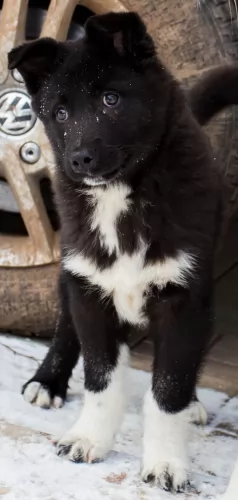 The Russo-European Laika is a medium sized dog Spitz dog that stands at between 54 to 60cm in height and weighs in the region of 20 – 23kg.
The Russo-European Laika is a medium sized dog Spitz dog that stands at between 54 to 60cm in height and weighs in the region of 20 – 23kg.
The dog has quite a strong resemblance to the Karelia Bear Dog. They are sometimes mistaken for each other.
The Russo-European Laika has the typical triangular shaped head with small dark eyes, a black nose and erect, pointed ears. These are deep chested dogs.
As with other Spitz breeds, this dog has a thick fur with a densely furred tail which is curved over the back. The double coat is fairly long and usually a dark grey color or black with some white markings. Sometimes the dog has a white coat.
This is a lively, energetic dog breed that loves to spend time outdoors. It has always been used to alert hunters to prey, using its bark to alert the hunter.Training and socialization will be necessary for the dog if you don’t want it to be barking in the house too.
He makes an excellent guard dog, protecting his human family. It is very tolerant of children too, getting on well with them as well as other pets.
The dog is known for being totally devoted to its family, being an affectionate and loyal breed that doubles as a family pet and guard dog.
 The Aussiedoodle is an intelligent, outgoing, patient and devoted family pet who will happily slot into any home where there are children and other pets.
The Aussiedoodle is an intelligent, outgoing, patient and devoted family pet who will happily slot into any home where there are children and other pets.
Most Aussiedoodles love being active and you’ll want to include him in all your activities – walking, swimming, ball games and herding.
Yes, it is true that the temperament of your Aussiedoodle will depend on the canine parents but he will also be influenced by your lifestyle and environment too.
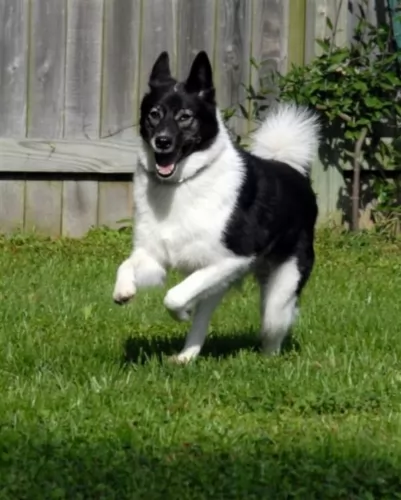 This is an intelligent dog breed, loving the time he spends with his human family but reluctant to be patted by strangers.
This is an intelligent dog breed, loving the time he spends with his human family but reluctant to be patted by strangers.
They also get along with pets that they have grown up with. They get on well with kids and make great watchdogs too. Small wonder they make such sought after pets and companions.
 As with most mixed-breeds, Aussiedoodles are a healthy breed, and your pet won’t come with any hereditary ailments. Both Australian Shepherds and Poodles have few inherent diseases, and by mixing the two, you get a robust breed.
As with most mixed-breeds, Aussiedoodles are a healthy breed, and your pet won’t come with any hereditary ailments. Both Australian Shepherds and Poodles have few inherent diseases, and by mixing the two, you get a robust breed.
Having said that, you always have to be aware that any dog, including your Aussiedoodle can inherit certain health problems of both the Poodle and the Australian Shepherd.
The Australian Shepherd is susceptible to vision problems and some health problems with the Poodle include epilepsy, renal disease and cancer, but in spit of this, the good news is that there aren’t many documented health issues with Aussiedoodles.
Always research and find a reputable breeder of Aussiedoodles who has certificates that the parents are sound and free from common health defects. Make sure that you get your puppy vaccinated from 8 weeks of age to avoid the common, deadly canine diseases that can rob you of your puppy. The very first vaccination will be for distemper, measles and parainfluenza.
 These Spitz type dogs are always known to enjoy good health, and owners don’t have to worry too much about their health as only a small number of health issues are reported with this healthy dog breed.
These Spitz type dogs are always known to enjoy good health, and owners don’t have to worry too much about their health as only a small number of health issues are reported with this healthy dog breed.
This is a congenital defect in the abdominal muscles and can result in fat or tissues being evident under the skin. A bulge is often seen in the area of the abdomen. Larger hernias will require surgery.
 The coat of Aussiedoodles need minimal maintenance. This is because of the Poodle input which is a low shedding dog. Aussiedoodles shed very little, but you will still need to give your dog a regular brush every other day to remove loose hairs and to also prevent matting. You can even include some professional grooming as his thick coat can quickly look dirty and unruly.
The coat of Aussiedoodles need minimal maintenance. This is because of the Poodle input which is a low shedding dog. Aussiedoodles shed very little, but you will still need to give your dog a regular brush every other day to remove loose hairs and to also prevent matting. You can even include some professional grooming as his thick coat can quickly look dirty and unruly.
Brush the teeth of your Aussiedoodle with special dog brushes and toothpaste to prevent plaque forming. You can also book an appointment at your local vet to have his teeth cleaned if you are reluctant to do it. it.
An Ausiedoodle under 6 months of age should be fed 3 or 4 times daily. Once your Aussiedoodle is 1 year of age you can cut the meals down to 1 or 2 meals a day.
Always select high quality foods and understand the labels and ingredients. Cheaper foods with ‘bad’ ingredients can mean more medical bills because of malnutrition.
Speak to your vet about feeding your Aussiedoodle. You can also prepare cooked meals for your dog and include chicken, meat, rice and vegetables. Remember this is a high energy dog and he will require foods high in protein to meat his daily energy and nutritional requirements.
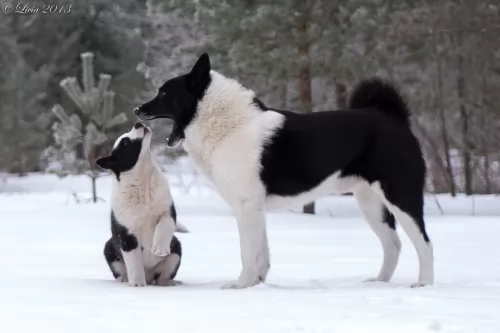 This is an energetic dog and will require a good amount of excerise. This dog isn’t suited to living in the city as they are highly active. Apart from wanting large grounds to run around in, he will need walks as well as ball- and rope games to keep him busy.
This is an energetic dog and will require a good amount of excerise. This dog isn’t suited to living in the city as they are highly active. Apart from wanting large grounds to run around in, he will need walks as well as ball- and rope games to keep him busy.
He is intelligent and needs some form of mental stimulation. There are good quality toys which one can buy for these dogs than can make them think.
Many things can change a dog’s longevity, and diet is one. A good nutritious diet with vitamins and minerals will give your dog less of a chance to get sick.
If you go for the best quality commercially manufactured dog foods, you’ll find that they are both convenient and well balanced.
To provide your dog with just a bit of variety in his diet, some home-made food added into the dry kibble from time to time will delight your pet.
No need to make preparing the food a huge issue either. Boil brown rice and chicken in a pot and add in sweet potatoes, carrots and spinach. Chop all this up and add small portions of it into the dry kibble.
Try to include a bit of raw meat occasionally and never let your dog be without a constant source of fresh, cool water